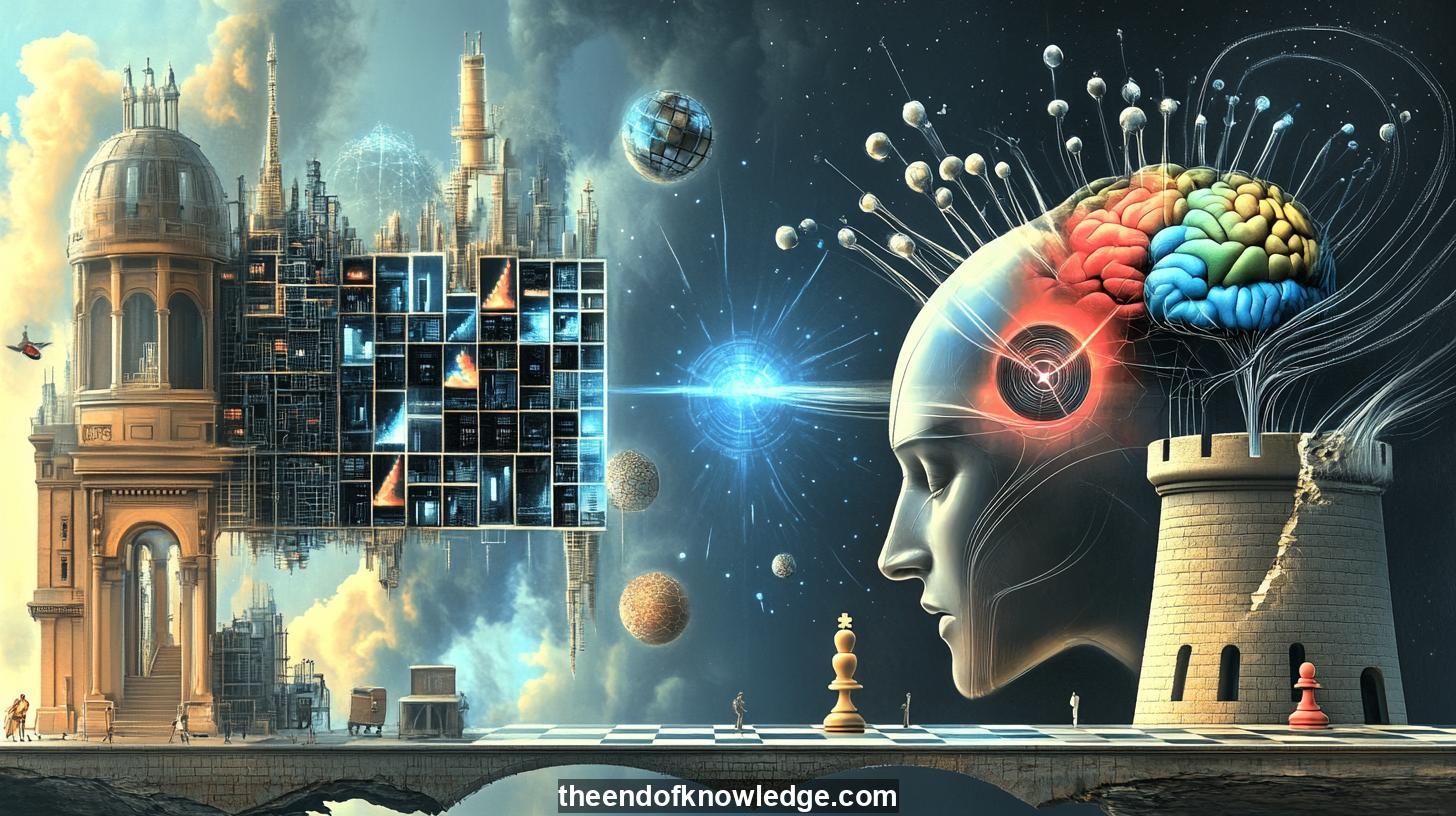Concept Graph, Resume & KeyIdeas using DeepSeek R1 :
graph LR
classDef main fill:#f0f0f0, font-weight:bold, font-size:16px;
classDef ethics fill:#ffd6d6, font-weight:bold, font-size:14px;
classDef impact fill:#d6ffd6, font-weight:bold, font-size:14px;
classDef collaboration fill:#d6d6ff, font-weight:bold, font-size:14px;
classDef limitations fill:#fff3d6, font-weight:bold, font-size:14px;
classDef europe fill:#ffd6ff, font-weight:bold, font-size:14px;
A[Vault7-180] --> B[Ethics: avoid harm,
global implications. 5,17,20,27]
A --> C[AI transforms industries,
redefines purpose. 1,4]
A --> D[Collaboration: interdisciplinary,
policy-tech ties. 7,9,28]
A --> E[AI limitations: lacks reasoning,
emotional depth. 3,10,15]
A --> F[Europe: resource challenges,
needs talent. 6,12]
A --> G[Public engagement: education,
responsibility. 8,23]
B --> H[Prioritize ethics to prevent harm. 5]
B --> I[Global ethics in development. 17]
B --> J[Consider ethical dimensions. 20]
B --> K[Ethics prevent harm. 27]
C --> L[Disrupts traditional industries. 4]
C --> M[Raises human purpose questions. 14,26]
D --> N[Interdisciplinary shapes future. 7]
D --> O[Policy-tech ensures benefits. 9]
D --> P[Collaboration drives future. 21]
E --> Q[Digital brains lack intelligence. 3]
E --> R[Models lack human reasoning. 10]
E --> S[AI lacks emotional depth. 15]
F --> T[Scaling challenges due to resources. 6]
F --> U[Foster talent for competitiveness. 12]
G --> V[Educate for informed decisions. 8]
G --> W[Public engagement aids responsibility. 23]
A --> X[AI creativity: promising,
controversial. 18]
A --> Y[Balance innovation with ethics. 11,22,30]
A --> Z[Address societal, tech challenges. 13,25]
class A main;
class B ethics;
class C impact;
class D collaboration;
class E limitations;
class F europe;
class G impact;
class X,Y,Z ethics;
Resume:
The conversation revolves around the evolution and implications of artificial intelligence (AI), focusing on its rapid development and societal impact. Juan Romero, a prominent figure in the AI community, shares insights into his journey from academic research to entrepreneurial ventures, emphasizing the transformative potential of AI. He discusses the transition from traditional programming to more advanced models like GPT, highlighting their ability to process information and generate creative content. Romero also touches on the ethical considerations of AI, such as privacy concerns and the potential for misuse, urging responsible development and regulation.
The dialogue delves into the concept of "digital brains" and their analogy to human cognition, exploring how AI systems mimic certain aspects of human thought processes. Romero reflects on the limitations of current AI models, stressing the need for continued innovation to achieve true general intelligence. He also addresses the challenges of scaling AI technologies, particularly in Europe, where resources and infrastructure may lag behind global leaders like the United States and China.
Romero shares anecdotes about his work in computational creativity, such as generating art and music using evolutionary algorithms. He emphasizes the importance of interdisciplinary collaboration and the need for diverse perspectives in shaping the future of AI. The conversation also touches on the societal implications of AI, including its potential to disrupt traditional industries and redefine human purpose in an increasingly automated world.
Throughout the discussion, Romero advocates for a balanced approach to AI development, one that prioritizes both technological advancement and ethical responsibility. He calls for greater public awareness and education about AI, urging policymakers and technologists to work together to ensure that these technologies benefit humanity as a whole.
The conversation concludes with Romero expressing optimism about the future of AI, while acknowledging the complexities and challenges that lie ahead. He underscores the importance of fostering talent and innovation, particularly in regions like Europe, to remain competitive in the global AI landscape.
30 Key Ideas:
1.- AI's development is transforming industries and raising ethical concerns about privacy and misuse.
2.- Juan Romero highlights the transition from traditional programming to advanced AI models like GPT.
3.- Digital brains mimic human cognition but lack true general intelligence and emotional depth.
4.- AI's potential to disrupt traditional industries and redefine human purpose is significant.
5.- Ethical considerations in AI development must be prioritized to avoid harm.
6.- Europe faces challenges in scaling AI technologies due to resource limitations.
7.- Interdisciplinary collaboration is crucial for shaping AI's future.
8.- Public awareness and education about AI are essential for informed decision-making.
9.- Policymakers and technologists must collaborate to ensure AI benefits humanity.
10.- AI models like GPT demonstrate impressive capabilities but lack human-like reasoning.
11.- The societal impact of AI requires a balanced approach to innovation and responsibility.
12.- Fostering talent and innovation is vital for Europe to remain competitive in AI.
13.- AI's future hinges on addressing ethical, societal, and technological challenges.
14.- The development of AI raises questions about human purpose and identity.
15.- AI systems lack the emotional and creative depth of human cognition.
16.- The rapid evolution of AI necessitates ongoing innovation and adaptation.
17.- Ethical AI development must consider diverse perspectives and global implications.
18.- AI's potential to generate creative content is both promising and controversial.
19.- Romero emphasizes the importance of responsible AI development and regulation.
20.- AI's societal impact requires careful consideration of its ethical dimensions.
21.- The future of AI depends on fostering collaboration and innovation.
22.- AI's transformative potential must be balanced with ethical responsibility.
23.- Public engagement with AI technologies is essential for their responsible development.
24.- AI's development challenges traditional notions of creativity and intelligence.
25.- The societal implications of AI require a nuanced and multifaceted approach.
26.- AI's evolution raises important questions about human identity and purpose.
27.- The development of AI must prioritize ethical considerations to avoid harm.
28.- Collaboration between policymakers and technologists is crucial for AI's future.
29.- AI's potential to benefit humanity is immense but requires responsible stewardship.
30.- The future of AI is shaped by balancing innovation with ethical and societal considerations.
Interviews by Plácido Doménech Espí & Guests - Knowledge Vault built byDavid Vivancos 2025
 >
>